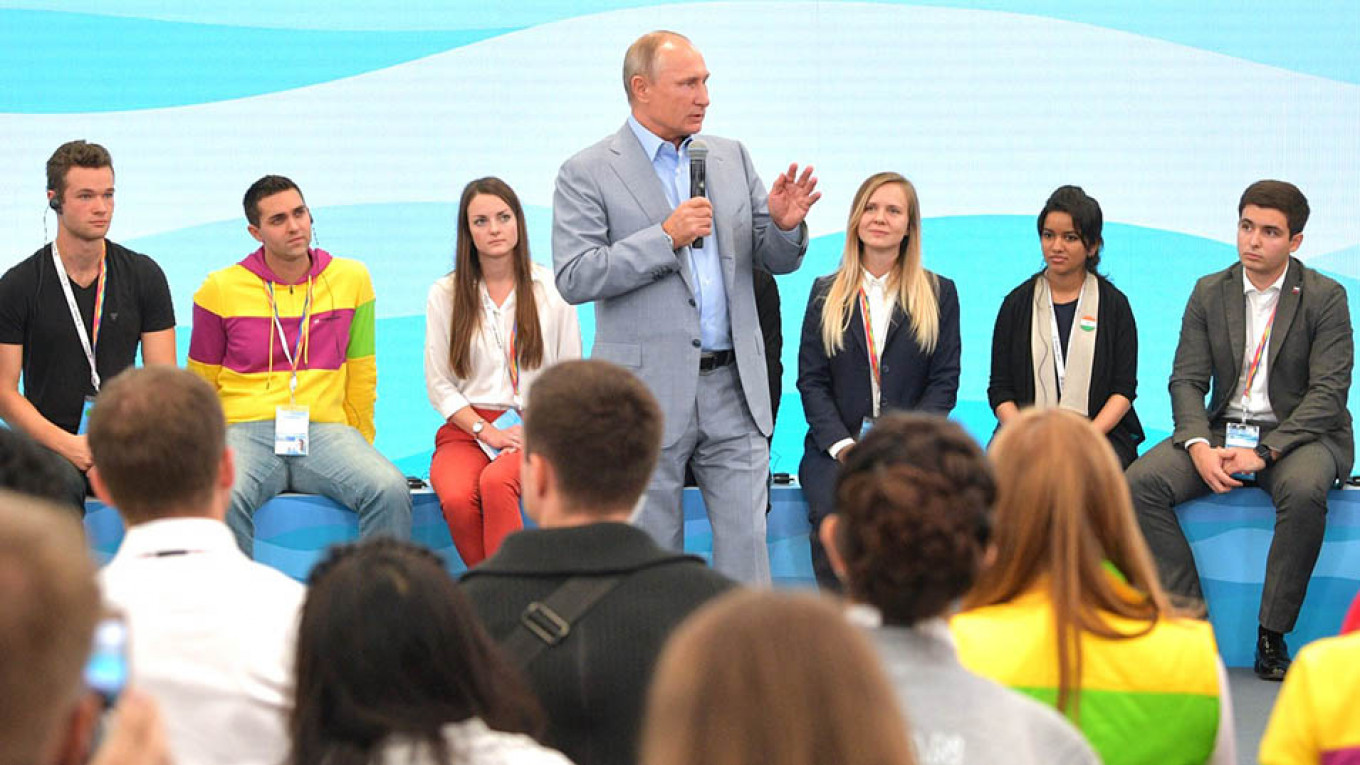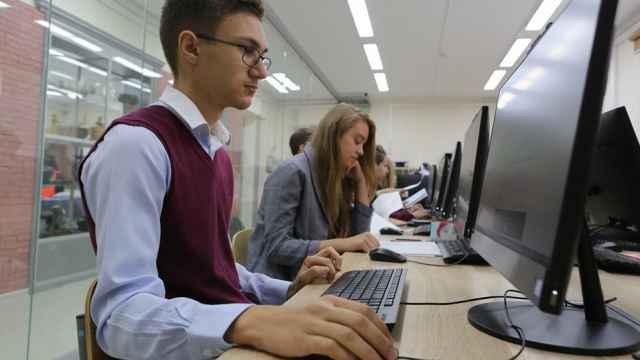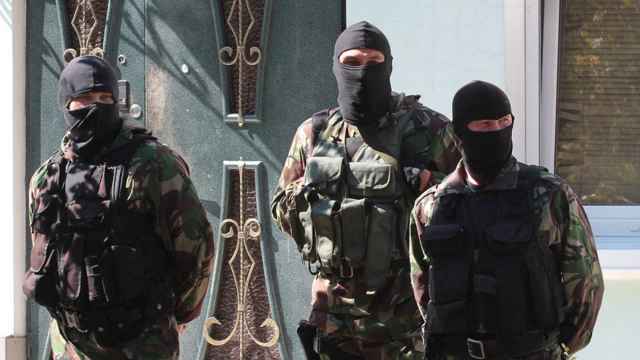Last month, Russian President Vladimir Putin quietly issued a decree on the subject of youth and the internet. It requires the government to study the online behavior of Russia’s youth, who rely on the internet for news and use it much more than any other age cohort in Russia.
Additionally, it calls for the creation of a body that will produce online content “aimed at the spiritual-moral education of youth.”
The problem with Putin’s stated interest in clarifying the internet’s appeal and function for Russia’s youth is that the Kremlin’s views on that age cohort, on digital media, and on that age cohort’s use of digital media, are more or less fixed.
Putin’s certainly are. The president, who officially does not own a mobile phone and reportedly does not use the internet yet has confidently declared that half its content consists of pornography, is convinced that digital tools are instruments of subversion used against Russia by its internal and external enemies.
Aspects of online life as fundamental as anonymity remind Putin of his days with the KGB in East Germany, as he told an audience of gifted children in 2017, and strike him as conducive to the breakdown of society, its norms, and its cohesion. Young people using the internet, where in Putin’s view “entire communities are formed” and radicalization occurs, are uniquely susceptible to malign influences like religious extremism and foreign propaganda.
Putin’s views are shared by many of Russia’s political elites, who agree that anonymity is the internet’s “most serious problem” and that youth offer religious and other extremists “a natural reserve” of recruits, a problem about which the FSB has insisted “something must be done.” So while the presidential administration’s curators of domestic politics are known to consider the internet a useful means of monitoring Russians’ political sentiments and steering public opinion, it’s doubtful that any research produced as a result of Putin’s decree will fundamentally change the political elite’s attitudes toward Russia’s, or the Runet’s, youngest.
Boding ill for Russia’s youth is the fact that the days of Nashi, the pro-Kremlin youth group of political technologist Gleb Pavlovsky, are long gone. Today, the Kremlin is focused less on the political promise of youth and their co-optation and more on the political threat they pose. That shift became especially evident in 2017, when a YouTube expose on the excesses of Prime Minister Dmitry Medvedev created by Alexei Navalny’s Anti-Corruption Foundation touched off protests across Russia.
News coverage and analysis of the protests emphasized the participation of youth — college students and schoolchildren alike — giving rise to talk of an ascendant shkolota and Navalnyata.
The picture painted for the Kremlin and its critics alike — of a less cynical generation that got its news from the internet rather than Russia’s uniformly pro-Kremlin federal television channels and did not fear the repercussions of taking to the streets — gave oppositionists hope but cemented a repressive turn in youth policy.
That year, the authorities contemplated restricting teenagers’ access to social networks and ending the parental rights of parents whose children had participated in protests, the latter a punishment prosecutors unsuccessfully tried to put into practice during Moscow’s recent summer of unrest.
At the same time, aided by teachers and administrators, police officers and representatives of the security services visited schools and universities to intimidate youth into staying home or in school when protests occur and their parents into keeping them there.
Rosmolodezh, the federal agency that oversees youth affairs, entered Putin’s fourth presidential term with a new if unofficial raison d'être — countering youth participation in protests — and in 2019 received the legal power to filter websites, underscoring the linkage of the Kremlin’s youth and internet problems. A 2018 law referred to by one Russian newspaper as “a law for Alexei Navalny” introduced fines for protest organizers who involve children in unsanctioned demonstrations.
Law enforcement agencies took to zealously prosecuting social media users, many of them teens and young adults, for producing or sharing extremist content until public outrage, including a mothers’ protest in Moscow, forced the Kremlin to intervene this time last year.
And a brief crackdown last winter on rappers, whose concerts were disrupted and who were threatened with extremism charges in a startling attack on an entire subculture, served to open yet another front in the authorities’ war on Russia’s youth.
The irony is that for all the pressure youth are under — ranging from the threat of criminal prosecution such as that facing HSE student Yegor Zhukov to the narrowing of space for dissent even on university campuses — the state still views them as, and reduces them to, instruments in someone else’s arsenal.
The Kremlin is specifically afraid that foreign and domestic adversaries have weaponized Russia’s youth, taking advantage of its supposed naivete and, in a charge that is awfully on the nose, uncritical acceptance of what it reads online. A case in point: when schoolchildren protest, it is often their parents who are held legally responsible, having failed to shield their kids from the teachings of Russia’s enemies.
For a boogeyman of the Kremlin, then, Russia’s youth is utterly lacking in agency and merely the hapless victim and unwitting agent of “an evil force from abroad or the influence of an alien culture,” a narrative adding insult to injury and highlighting a depth of ignorance that no Kremlin-commissioned research — or “spiritual-moral education,” be it online or offline — can correct. The reality is that, in the words of Novaya Gazeta columnist Kirill Martynov, “the authorities do not know and do not understand young people … and through their ignorance are turning Russia’s future against itself.”
A Message from The Moscow Times:
Dear readers,
We are facing unprecedented challenges. Russia's Prosecutor General's Office has designated The Moscow Times as an "undesirable" organization, criminalizing our work and putting our staff at risk of prosecution. This follows our earlier unjust labeling as a "foreign agent."
These actions are direct attempts to silence independent journalism in Russia. The authorities claim our work "discredits the decisions of the Russian leadership." We see things differently: we strive to provide accurate, unbiased reporting on Russia.
We, the journalists of The Moscow Times, refuse to be silenced. But to continue our work, we need your help.
Your support, no matter how small, makes a world of difference. If you can, please support us monthly starting from just $2. It's quick to set up, and every contribution makes a significant impact.
By supporting The Moscow Times, you're defending open, independent journalism in the face of repression. Thank you for standing with us.
Remind me later.








